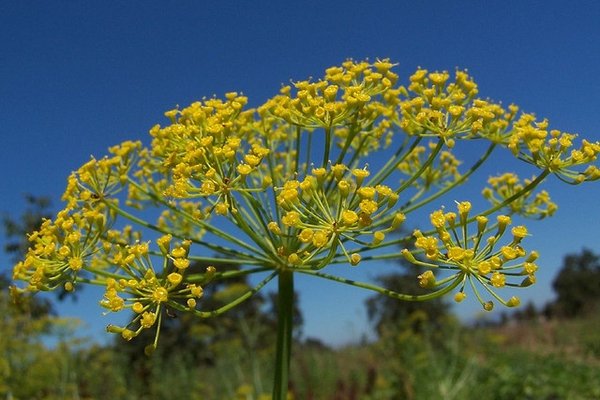Stevia – (Stevia rebaudiana)
Stevia rebaudiana, commonly known as stevia, is revolutionizing the sweetener market. This natural alternative to sugar, derived from the leaves of the stevia plant, is taking the health and wellness world by storm. With its zero-calorie content and ability to sweeten foods and beverages, it’s no wonder stevia has become a household name.
Not only is stevia a healthier option for those looking to reduce their sugar intake, but it also boasts medicinal properties that have been recognized for centuries. From controlling blood sugar levels to reducing blood pressure, the benefits of stevia extend far beyond its sweetening capabilities. Let’s dive into the world of stevia and uncover what makes this plant a game-changer in the sweetener industry.
Key Takeaways
- Stevia rebaudiana, known as stevia, is a natural, zero-calorie sweetener derived from the leaves of the stevia plant, offering a healthier alternative to sugar that doesn’t spike blood glucose levels.
- The sweetness of stevia comes from steviol glycosides, mainly stevioside and rebaudioside A, which are up to 300 times sweeter than sugar, allowing for much less product usage with the same sweetening effect.
- Research has highlighted stevia’s potential health benefits, including managing diabetes by lowering blood sugar levels, reducing blood pressure through antihypertensive properties, and providing antioxidant benefits to reduce chronic disease risks.
- The food and beverage industry is increasingly using stevia as a key ingredient in various products due to its heat stability, versatility, and consumer preference for natural sweeteners over synthetic alternatives.
- Stevia’s market value is on the rise, reflecting a growing consumer demand for healthier, natural sweetening options, with projections suggesting a significant increase in economic significance.
- Incorporating stevia into daily life, such as in beverages, cooking, and baking, can help manage sugar intake and promote a healthier lifestyle without sacrificing taste.
What is Stevia rebaudiana?
Stevia rebaudiana, more commonly known simply as stevia, is a small, leafy plant native to South America, particularly Brazil and Paraguay. It belongs to the Asteraceae family, which includes other well-known plants such as sunflowers and daisies. Stevia has been used for centuries by the indigenous people of these regions for its natural sweetness and medicinal properties.
The secret behind stevia’s sweetening power lies in its leaves. They contain potent compounds known as steviol glycosides, primarily stevioside and rebaudioside A, which are responsible for the plant’s sweetness. Remarkably, these compounds can be up to 300 times sweeter than regular sugar but contain zero calories. Their unique attribute has catapulted stevia to the forefront of natural sweetener options in the health and wellness industry.
Research into Stevia rebaudiana has shown promising results beyond just its sweetening capabilities. Studies have highlighted its potential benefits in controlling blood sugar levels and managing diabetes. A article published in the journal “Appetite” found that stevia might help lower blood glucose levels and improve satiety, which could be beneficial for weight management. Another study in the “Journal of Dietary Supplements” concluded that stevia could have a favorable effect on reducing blood pressure, making it not just a sugar substitute but also a tool for improving certain health indicators.
The growth in stevia’s popularity is also accredited to its versatility. It’s suitable for use in a wide array of products, from beverages and baked goods to sauces and dressings. Unlike some other sweeteners, stevia remains stable under high temperatures, making it an excellent choice for cooking and baking.
As the world moves towards healthier lifestyle choices, the demand for natural, calorie-free sweeteners like stevia is on the rise. Its benefits extend beyond just those looking to reduce their sugar intake; they also encompass individuals monitoring their blood pressure or managing diabetes. This shift in preference underscores stevia’s significant potential in influencing the future of sweetening agents.
The Rise of Stevia as a Natural Sweetener
In recent years, stevia has emerged from the shadows of alternative health circles to become a leading figure in the quest for healthier sweetening options. With consumers becoming increasingly wary of synthetic sweeteners and their possible health implications, the demand for natural alternatives like stevia has surged. Unlike its artificial counterparts, stevia boasts a zero-calorie profile along with the ability to control blood sugar levels, making it not just a sweetener but a health-conscious choice for many.
Derived from the Stevia rebaudiana plant native to South America, stevia’s sweetening power is attributed to compounds known as steviol glycosides. These glycosides are not only up to 300 times sweeter than sucrose but also carry none of the caloric baggage, offering a guilt-free sweetening solution. Research further bolsters stevia’s standing in the health community, with studies demonstrating its potential in managing diabetes and reducing blood pressure. A comprehensive review published in the Journal of Nutrition and Metabolism underlines these benefits, showcasing stevia’s ability to modulate glucose levels and hypertension.
Beyond its health advantages, stevia’s adaptability in various product formulations—from beverages to baked goods—cements its status as a versatile sweetener. As manufacturers strive to meet the growing consumer demand for healthier, natural food options, stevia’s role in the food industry has expanded. The global market has seen a considerable uptake in stevia-based products, reflecting a shift in consumer preference towards natural ingredients and away from sugar and artificial sweeteners.
| Year | Market Value (USD) |
|---|---|
| 2020 | 590 Million |
| 2025 | Projected to exceed 1 Billion |
This table highlights the growing economic significance of stevia as more than just a health trend. Its ascent in both consumer preference and market value indicates a broader move towards more natural, healthful dietary choices. As this trend continues, the future for stevia as a leading natural sweetener looks both bright and promising.
Health Benefits of Stevia
Stevia, a natural sweetener derived from the Stevia rebaudiana plant, has garnered attention not only for its ability to sweeten foods and beverages without adding calories but also for its various health benefits. Research has consistently demonstrated that this plant-based sweetener can play a significant role in enhancing overall health.
One of the most notable benefits of stevia is its impact on blood sugar levels. Unlike traditional sugar, stevia does not cause spikes in glucose levels, making it an ideal alternative for those monitoring their blood sugar, including individuals with diabetes. A study published in the Journal of Nutrition and Metabolism highlighted that stevia could help lower blood glucose levels, thus presenting a viable option for diabetes management.
Furthermore, stevia has been linked to blood pressure control. Compounds found in stevia, such as stevioside and rebaudioside, are believed to have antihypertensive properties. According to research in the British Journal of Clinical Pharmacology, these compounds can widen blood vessels and stimulate urine production, which can help in lowering blood pressure in individuals suffering from hypertension.
In addition to its beneficial effects on blood sugar and blood pressure, stevia is also noted for its antioxidant properties. Antioxidants are crucial for neutralizing harmful free radicals in the body, thereby reducing the risk of chronic diseases. Stevia contains a variety of plant compounds that have antioxidant capabilities, including kaempferol, which has been studied for its ability to reduce the risk of pancreatic cancer.
As consumers increasingly seek natural and healthful alternatives to sugar and synthetic sweeteners, stevia’s popularity is on the rise. Its zero-calorie nature combined with potential health benefits makes it an attractive option for a wide range of dietary needs. Moreover, the versatility of stevia allows it to be incorporated into a variety of products, further extending its reach in the global market. As research into the health benefits of stevia continues, its role in promoting a healthier lifestyle becomes even more significant.
Stevia in the Food and Beverage Industry
The global food and beverage industry has increasingly embraced Stevia rebaudiana as a key ingredient, revolutionizing the way manufacturers think about sweetening products. Stevia’s unparalleled advantage lies in its zero-calorie content and natural origin, making it a prime choice for creating healthier product options. From sodas and juices to snacks and desserts, stevia is enhancing product labels with its appeal to health-conscious consumers.
Notably, stevia’s versatility allows it to be incorporated into a vast array of products without compromising taste or stability. Its heat stability and pH stability mean it can be used in products that undergo extreme processing conditions, something artificial sweeteners cannot always withstand. Additionally, because stevia is much sweeter than sugar, smaller quantities are needed, which can significantly reduce production costs.
Recent research highlights the market’s shift towards natural sweeteners, with stevia leading the charge. A 2021 study showed that 62% of consumers in the United States are more likely to purchase products sweetened with stevia, recognizing its benefits over artificial sweeteners and sugar. This consumer preference is driving innovation in food and beverage formulations, encouraging brands to explore new ways of incorporating stevia into their products.
The demand for stevia has also led to advancements in stevia cultivation and extraction processes, ensuring a sustainable and consistent supply of high-quality stevia extracts. These advancements support the food and beverage industry’s need for reliable, natural sweetening solutions that cater to the evolving tastes and health preferences of global consumers.
Manufacturers leveraging stevia are not only able to meet the growing demand for healthier products but also gain a competitive edge in the market. As the industry continues to evolve, stevia’s role is expanding, underscoring its value and versatility in creating products that meet the desires of health-conscious consumers around the world.
How to Use Stevia in Your Daily Life
Incorporating stevia into daily life can be both a simple and strategic way to manage sugar intake without sacrificing taste. Stevia’s versatility in food and beverage preparation makes it an excellent sugar substitute in a variety of dishes and drinks. Here’s how to make the most of this natural sweetener.
In Beverages
Stevia can effortlessly replace sugar in your daily beverages. Whether it’s coffee, tea, or homemade lemonade, stevia provides the desired sweetness without the extra calories. For a standard cup of coffee or tea, start with a pinch of stevia powder or a few drops of liquid stevia, and adjust according to taste. It’s significantly sweeter than sugar, so a little goes a long way.
Baking and Cooking
Stevia is also a favorite in the kitchen, especially for baking. However, because it’s much sweeter than sugar, adjustments are necessary. A general guideline is to use one teaspoon of stevia for every cup of sugar the recipe calls for. Remember, though, that because stevia lacks the bulk provided by sugar, you might need to add other ingredients to maintain the desired volume and texture. Ingredients like unsweetened applesauce, mashed bananas, or yogurt are often used to substitute the bulk that sugar would normally add to baked goods.
Store-bought Products
More food manufacturers are incorporating stevia into their products, making it easier to choose healthier options off the shelves. From cereals and snack bars to salad dressings and soft drinks, looking for labels that list stevia as a sweetener can help reduce refined sugar consumption. Always check nutrition labels, as some products may mix stevia with other sweeteners.
Adjusting to Taste
It’s crucial to adjust gradually when incorporating stevia into your diet. Though it’s natural and safe, stevia has a distinct taste that some may need time to get accustomed to. Starting with small amounts can help the palette adjust without overwhelming it.
Stevia’s applications in daily dietary habits are extensive and adaptable. Whether used in home-cooked meals, beverages, or choosing store-bought products, stevia offers a way to enjoy sweetness healthily and responsibly. With its calorie-free nature and potential health benefits, stevia presents an attractive alternative for those aiming to reduce sugar intake or manage conditions like diabetes. Remember, moderation is key, as with any dietary change.
Conclusion
Stevia stands out as a beacon of health and innovation in the sweetener market. Its remarkable ability to offer sweetness without the calories makes it a game-changer for those looking to manage their sugar intake or navigate health conditions like diabetes and hypertension. Beyond its health benefits, stevia’s adaptability in food and beverage formulations speaks to its growing popularity among manufacturers and consumers alike. As the world leans towards healthier, more natural food options, stevia’s role is undeniably pivotal. By choosing stevia, individuals not only take a step towards better health but also contribute to a trend that encourages the food industry to innovate and offer products that are both delicious and nutritious. Stevia isn’t just a sweetener; it’s a lifestyle choice that aligns with the modern consumer’s desire for wellness and sustainability.



